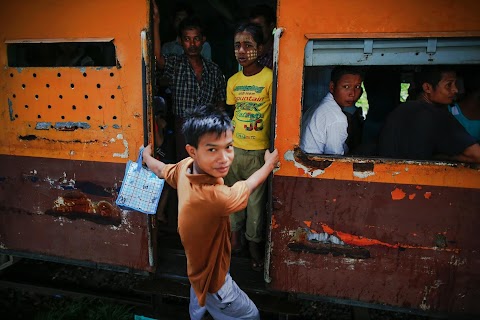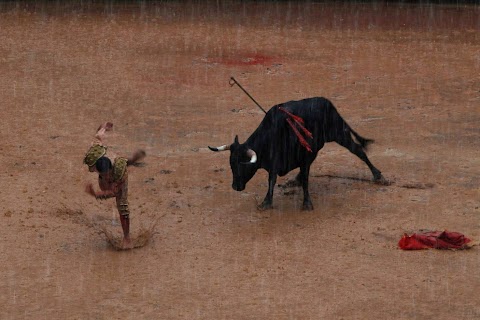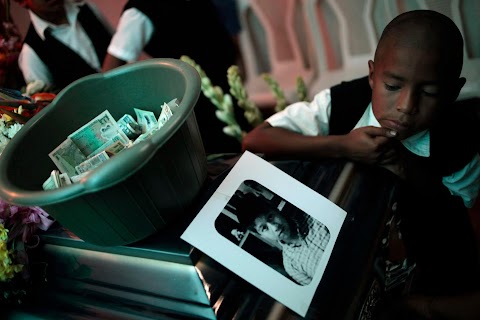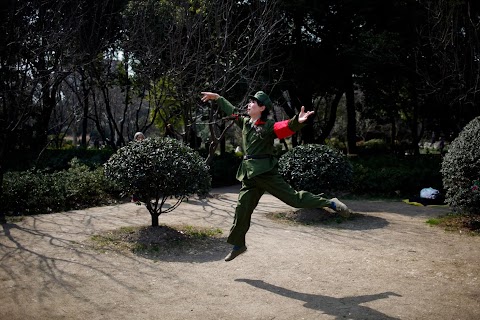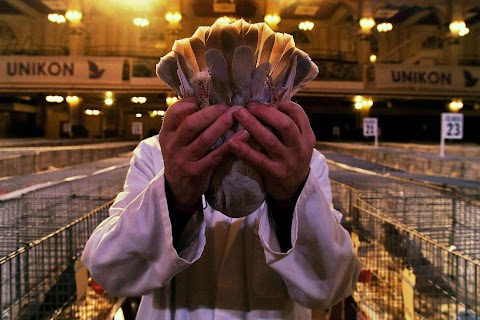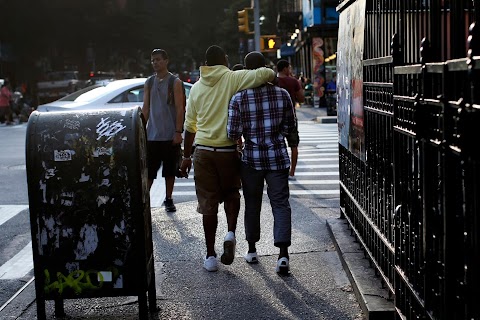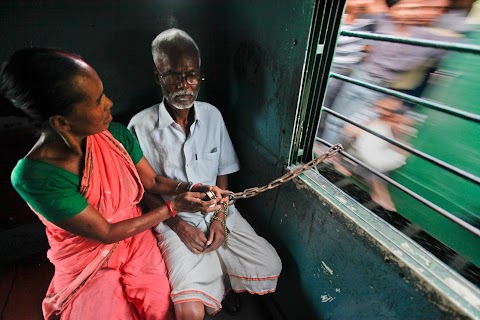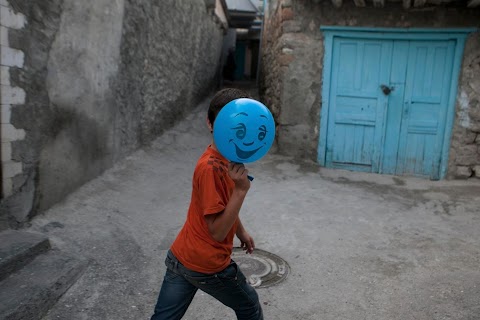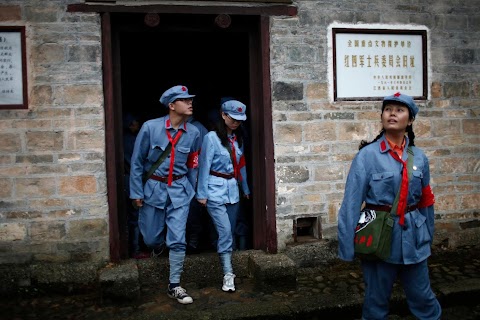
China's executive leadership academy
Sporting Red Army uniforms, these young men and women look like a throwback to the China’s past, but the ruling Communist party hopes that individuals like them will also help shape the country’s future.
They are a few of the 40,000 or so cadres who have attended an elite, new communist academy, where the Chinese Communist party hopes to rekindle faith in its founding principles.





Story
China slowdown adds urgency to Communist Party soul searching
Chinese university teacher Zhu Haibin wept softly as she and other Communist Party cadres stood in rows before a mass grave of Communist fighters in southern China.
Ignoring light drizzle, the group listened to a party instructor tell the story of Zhang Longxiu, a "hero mother" from the early days of China's Communist revolution, who was tortured to death by Nationalists while protecting her son.
Dressed in 'Red Army' garb, they looked like travellers on a history tour, except the scene was less about history than survival - the survival of a party that critics say has lost its ideological soul after more than three decades of free-market reforms and is striving to stay relevant.
The uniformed group listening to the story were cadres at an elite new Communist leadership academy, the softer side of a campaign launched under President Hu Jintao to strengthen the party which, despite boasting roughly 80 million members, still quietly fears Soviet-style oblivion if China's economic miracle comes to a halt.
SURVIVAL TRAINING
With China's economy slowing and public scrutiny of officials on the rise via social media, the party is likely to endorse deepening its training push when Hu passes the baton to new leaders at the 18th Party Congress, which is expected to be held as early as next month.
China's cadre training system is run out of academies across the country, and at Jinggangshan's China Executive Leadership Academy, the job is to win hearts, not just minds.
Hand-picked teachers are coached to stir the emotions of the trainees and hammer home two messages: your revolutionary forebears made immense sacrifices in harsh conditions, and the party exists to serve the people.
It seemed to work, at least during a recent visit to the academy arranged for foreign and local journalists.
"The difficulties that I face are nothing," said Zhu, the university teacher from Hainan province, sniffing back tears after hearing the story of Zhang, the "hero mother".
China experts are skeptical the party can endure by tugging at heartstrings. They say it has drawn its modern legitimacy from a stunning economic rebirth, but that effect is fading as the economy matures and adjusts to slower rates of growth.
"You have to find other ways to bolster and sustain your legitimacy and I think that's where they have a problem going forward," said Damien Ma, an analyst with the Eurasia Group.
Two other Executive Leadership Academies opened in 2005 when the Jinggangshan school opened. They form the vanguard of the training push alongside Beijing's Central Party School, which crowns a network of nearly 3,000 party schools nationwide.
In Jinggangshan, students dress in Red Army uniforms, sing revolutionary songs and haul baskets of rice along a path traversed by Mao Zedong, the late Communist leader, more than 80 years ago. Classroom time is spent on history lessons.
But even for cadres at Jinggangshan, the problems of the present are not far from their minds.
Zhang Dechang, another Hainan cadre on a five-day course, said: "Cadres now are overly pragmatic in their thinking and perhaps think too much about their own benefit. We need to do more governing for the people."
Yuan Meisheng, a Beijing official also on a week-long course, said the training had a valuable but limited impact.
"With this kind of education it isn't like you go back and there's a big change. It's subtle."


















